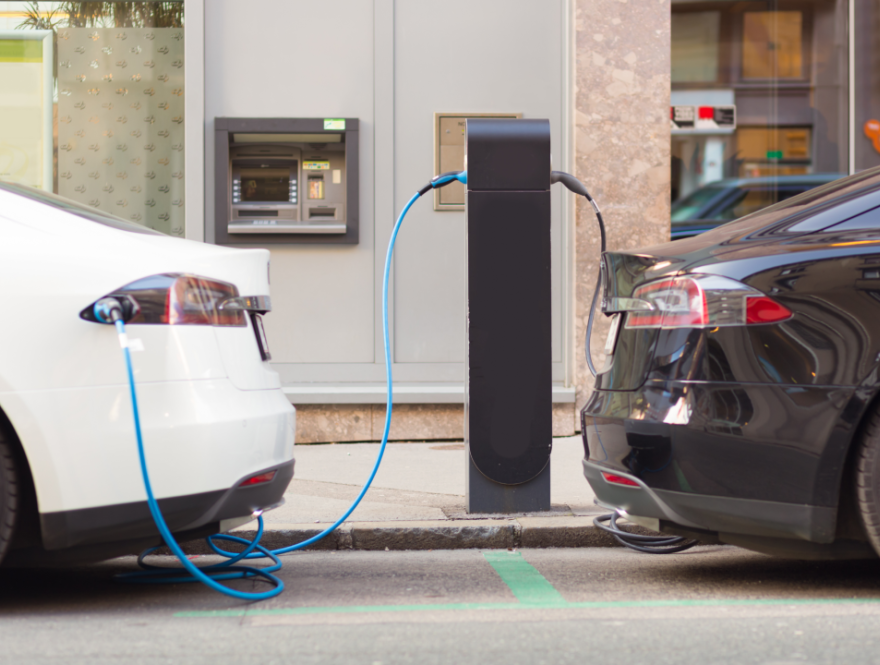New grant to make Public Works Building a Storm Resilient Emergency Command Center.
In January 2025, after a successful application by the ESB, the Town of Waynesville was awarded a Dogwood Health Trust Innovative Grant for $487,532. This award will fund the creation of a resilient, emergency command center at the Public Works Building via a solar array and battery storage project. During Hurricane Helene, the Public Works Building served as a command center not only for Waynesville, but also for response coordination across Haywood County because luckily, it never lost power. However, we all know power in a storm is never a certainty and to future-proof disaster response, the solar and battery system will enable the command center to continue its critical operations, even during a power outage lasting days. As an added bonus, the solar and battery system will generate free power for the town 365 days a year, significantly lowering the costs of running the Public Works Building for town taxpayers.
New Level II EV chargers will be installed at the Waynesville Recreation Park Feb. 23. These six level II (9.6kw) chargers will be able to provide approx. 20-45 miles per hour for most EVs. These FREE chargers, donated by William Hite--Chair of the Environmental Sustainability Board and serviced by the Town, are a benefit for the entire community and support cleaner, quieter, more efficient transportation as people enjoy outdoor activities at the park.
*The Environmental Sustainability Board (ESB) supported the Town of Waynesville on a successful $700k application in 2024 to Dept. of Energy’s Communities-Local Energy Action Program (C-LEAP). Currently, we are working with National Renewable Energy Laboratories to assess ways to reduce energy usage, reduce dirty emissions and save the town money: Solar, EV chargers, etc. The grant was awarded in partnership with the local nonprofit Environmental Action Community, which will conduct outreach on context and programs to serve businesses and residents. For more information on the Community Program, click here.
*The ESB is supporting the Town of Waynesville on a final stage $450k application in April 2025 to the NC Clean Fuel Advanced Technology project. This grant would install 2-4 high-speed, pay-for-service EV chargers in the Hazelwood parking lot. Once installed, these chargers would currently be the fastest in NC!
*EnergySavers NC: the ESB is working with the Environmental Action Community and other community partners to promote the state-wide program to reduce energy usage for low and middle income homeowners through weatherization or efficient electric appliance upgrades. Low-income households can qualify for 100% rebate, middle-income up to 50%. Homeowners can apply online using the below link. (For assistance applying to the program, contact info@eacwnc.org)
*In 2024, the ESB worked with the town to initiate an energy assessment of the town hall and finance buildings. The assessment report, by Waste Reduction Partners, highlighted key actions to start now in order to reduce energy usage and costs. Key recommendations included replacing fluorescent and incandescent lights with LEDs as they burn out; replacing HVAC systems with high-efficiency models as they fail; installing motion sensors on lights and HVAC to reduce wasted energy. To view the Town's Buildings 2023 Energy Report, please click here.
*The ESB has been working to conduct solar assessments on the Rec Center and Public Works building. The reports show good return on investment for solar installations on those buildings that not only will lower the town’s energy costs, but will also make those buildings more resilient in the event of a loss of grid electricity. During Helene response, the Public Works building functioned as an emergency coordination center for the county. Luckily it never lost power, however uninterrupted grid power is not a guarantee in future storms. A grant was submitted to cover the costs of adding solar and battery storage to the Public Works building to create a resilient emergency response hub that can continue to serve immediate post-storm response, even in the event of a grid disconnection.
*The Mayor of Waynesville proclaimed October 4th, "Energy Efficiency Day".
